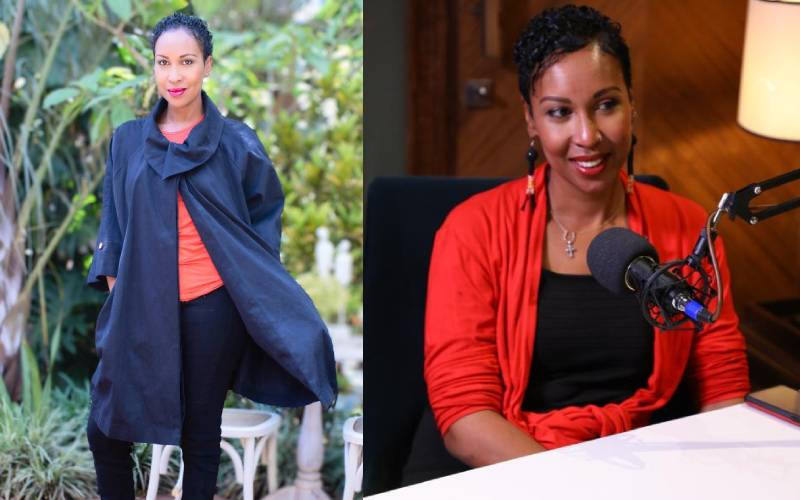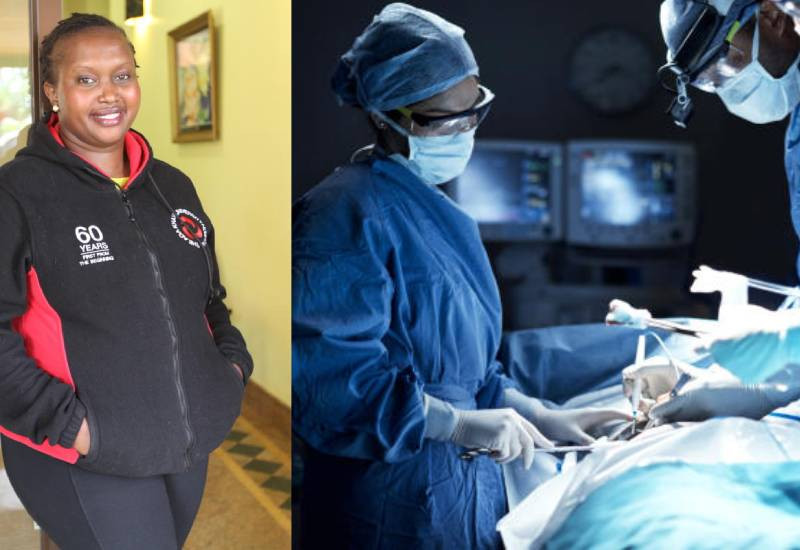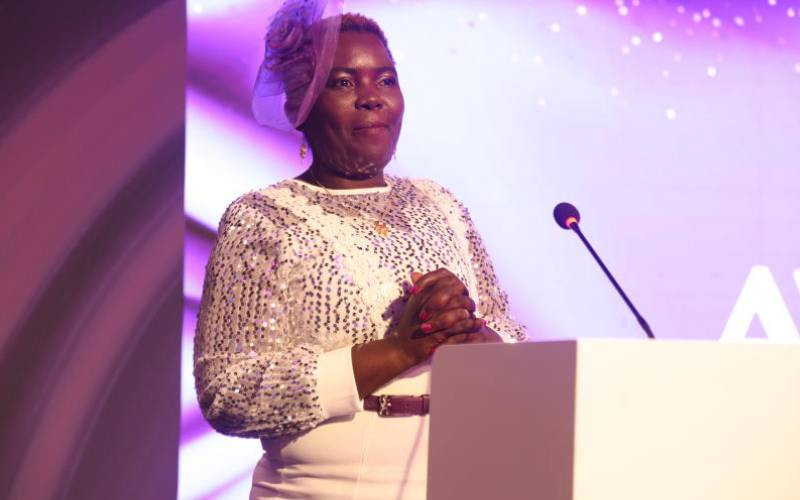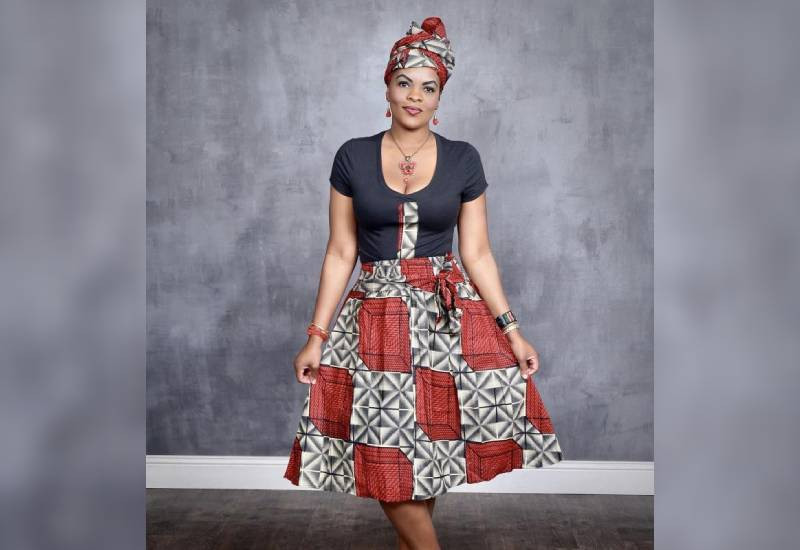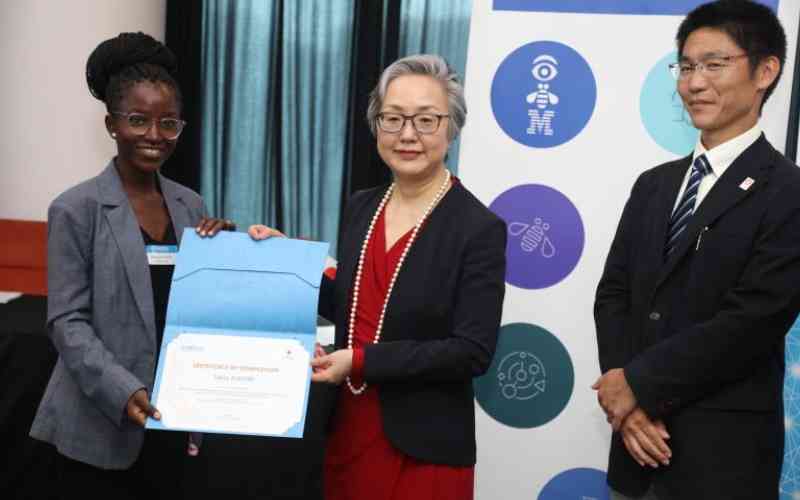
Elsie Wanderan was dismissed by her friends and nearly lost her job because of endometriosis, she telss us why women should not accept severe period cramps as normal and why she wants the goverment to fund more research on the condition.
Like many other teenage girls, Elsie Wandera, now 36, was filled with excitement and trepidation in equal measure about the onset of her period – one of the signs of womanhood – when she was 13.
But two years later at 15, Elsie found her life turning upside down. “I would dread that time of the month because I had severe cramps. It felt like there was a big bubble stuck in my uterus. Like there were needles poking me. There were times I couldn’t get out of bed and I just had to curl myself into a foetal position until the pain subsided.”
During her years at Loreto Convent Msongari, Elsie’s teachers would often have to call her parents to pick her up to go see a doctor because she complained of severe pains. “The painkillers I took didn’t work,” she says.
Lost self-esteem
Elsie said her self-esteem took a beating after fellow students accused her of being an attention seeker. “The other girls thought it was a cry for attention and I was just looking for a reason to skip classes. To them, cramps were just a normal part of life to be endured for some days, and they didn’t understand why I was making a big deal out of it. That really hurt me.”
Elsie accepted the pain as part of her life for years, until one day when she was 26. She’d had enough. Elsie felt she was putting her job at risk because she would have to call in sick often during her period.
Women miss out promotions
“My employer was supportive, but I felt I was losing many productive hours. Many women with endometriosis do not have employers who are as supportive and they have been bypassed for promotions because their bosses think they are poor performers or are lazy,” Elsie says.
Inside out
When Elsie went to see a gynaecologist, what he told her was shocking. “He said I had endometriosis and that the easiest way he could describe what that meant was that my uterus was inside out,” she says.
Elsie says she laughed off the diagnosis, thinking it was nothing serious.
But a little research revealed it was not a condition to be taken lightly. “I found out that many people with the condition are unable to have children. This scared me and I wanted to rush to get children before it was too late,” she confesses.
However, Elsie’s then boyfriend was not ready for a child. “Besides, endometriosis makes sex painful,” she says.
Elsie’s doctor advised her to undergo surgery. “I signed up for it immediately, thinking that it would be a permanent solution to the pain. The doctor made it sound like once I had the surgery, the endometriosis would be gone for good.”
But that was not the case. Elsie enjoyed relatively painless periods for the first six months after the surgery. “I felt like I had my life back. Though I was put on hormonal therapy, which made me exhibit menopausal symptoms like heat waves. But I was happy the pain was gone.”
The painless life was, however, short-lived. The severe cramps came back, and this time with a vengeance.
“When the cramps returned, they were worse than before. I went back to my doctor and explained what was happening. He then told me surgery does not always cure the condition, and it can recur. I felt shortchanged.”
Elsie went back to her life and learnt to accept that endometriosis was part of her.
Passion for research

Elsie developed a passion for researching about endometriosis and found out there are some natural ways to reduce the effects of the condition.
“There are some simple things people are not aware of that can help reduce the strain of the condition. Something as simple as eliminating, or at least reducing, the intake of wheat products and dairy can help reduce the effects. There is lack of awareness and that is what prompted me to form the Endometriosis Foundation of Kenya.”
Due to the excruciating pain, Elsie underwent a second surgery to remove an endometrial cyst in September 2014.
Elsie says a lot of women who suffer from endometriosis feel alone and they need support and encouragement. This is what prompted her to form the Endometriosis Foundation of Kenya in 2015.
The forum brings together women – Endosisters – who suffer from the condition, for support.
Last year, Elsie organized the first forum to run in March – the month of endometriosis awareness campaigns worldwide.
The movement started off from a simple Facebook page where Elsie would post encouraging messages and information to women with endometriosis. “The response was overwhelming and I decided to take the conversation offline. That is how the foundation came to be,” she says.
“Some of the challenges women with endometriosis face include being told pain is something women are supposed to be able to handle, and the possibility of infertility. We need support both from fellow women and men.”
Elsie also says some doctors are insensitive in how they break the news to patients. “How you deliver the news is important. A woman can lose confidence if she is just told she may not be able to have children. We need support and medics need to be trained.”
She says employers also need to be made aware on how to support Endosisters.
Elsie says many women – not just from poor backgrounds – have a hard time meeting the costs associated with endometriosis. “There are many women who cannot afford the regular doctors’ consultation fees which on average costs about Sh2,500 per visit.”
“Surgery is not cheap either and some women do not have as good an insurance cover as I had. Also, surgery for the condition is not covered by many insurers. It’s important for the state to help these people and fund research.”
She says more men need to join the campaign and support women.

 The Standard Group Plc is a multi-media organization with investments in media platforms spanning newspaper print
operations, television, radio broadcasting, digital and online services. The Standard Group is recognized as a
leading multi-media house in Kenya with a key influence in matters of national and international interest.
The Standard Group Plc is a multi-media organization with investments in media platforms spanning newspaper print
operations, television, radio broadcasting, digital and online services. The Standard Group is recognized as a
leading multi-media house in Kenya with a key influence in matters of national and international interest.

